INTERVIEW WITH PROF. DEBASHIS CHATTERJEE – DIRECTOR OF IIM KOZHIKODE ON HIS LATEST BOOK ‘THE CLASS ACT’
PART II OF THE INTERVIEW
(The interview was conducted by Milind Padalkar and Chacko Jacob, Doctoral Students of IIM Kozhikode)
Interviewer: In the book at various places, you allude to the need for the teacher to be quite intensely contemplative. One could even the say that you are asking the teacher to be a little bit of an isolationist. But the teacher has to live in a community of learners and has to stay connected. So how does a teacher balance having to withdraw and having to immerse?
I had a professor at Harvard, Dr. Ronald Heifetz. He used to say that if you want to adapt to a new reality, you have to be part of the dance floor; and yet see the dance from the balcony to see what the choreography is like. That metaphor sits in my head so powerfully. In order to be active, you have to be contemplative. You have to see how the actions choreograph from a distance; otherwise your own action will be chaotic. Ok, so you need that distance, you need that perspective. You need the silence and solitude in order to go into the intensity of the action. And while you are in the intensity of the action, the contemplation hasn’t died down. In fact contemplation and action are complementary. You see because your reflective consciousness and your active mind can co-exist. It’s not as though they are two separate things. And so in order for you to be sensitized to your reflective consciousness, you must from time to time, withdraw from action.
But contemplation doesn’t mean sitting and gazing the navel for years. Contemplation means reflecting on your actions because a life without reflection and an action without reflection are meaningless. This reflective capacity tells us which of our actions are appropriate and which are not. If you lose that, you become an automaton. Then anybody can nudge you in any direction. Reflection prevents that kind of life.
That’s why we give two months of sabbatical to our professors here. The idea is that if they go on a reflection break, they can come back with renewed vigor. It means you vacate your mind from the hurly burly of active life, you reflect, and then you come back into the field of action. As you have seen in the middle of Mahabharata, Arjuna is doing just that before he acts. There is just a contemplative discourse of 700 verses, which you call Gita. It is not a philosophy alone, it is an action philosophy, a “philosophy of action”. Arjuna reminds you that it is very important that you have to be reflective so as to become a super star. That is a gentle reminder to our students. Those who don’t self-reflect, self-destruct. It is as simple as that.
Interviewer: There is this aspect of your book that it appears as a discourse first; and then suddenly we find that it is actually a monologue. Which one is it?
No, you see the point is that we are constantly talking to ourselves, whether we realize it or not. Constantly. The upanishads have a beautiful imagery here. One tree has two birds, one bird is eating the fruit and the other bird is just watching. So this observer in you is always in relationship with the actor in you. And this happens in all of us, except that it does not get published. So it is not a monologue, it is kind of internal conversation that is made explicit, so that you can connect with the global audience.
Very interestingly, I got letters from various principals around the world and not just from this country, saying that it connects with what they have been thinking, which they could not put down in words. That’s about it.
Interviewer: The other thing about the style one notices is the interesting duality of relationship between what we may call the ‘teacher’ & the ‘learner’. The teacher becomes the learner and then thereby starts on the journey of excellence in teaching. Sort of a duality between the self and what can be said as non-self, i.e. outside of you. That is not an easy lesson. How does one absorb it?
You mean to say its not easy to read the book?
Interviewer: No. It is easy enough to read. It is just that it is not easy to act on what it says.
Ok. You have to see the action in terms of what? Is it compliance you are talking about? Now this book will not make you compliant. It is not a ‘how to’ manual.
Is it going to make you committed? May be. It may make you committed to something. But more importantly, it will open your consciousness to something that is relatively pure. Because it is important that we also pursue pure knowledge. You can take a book and say, “I will only take a book which is a ‘how to’ manual”, which means you are looking for equipment; which means you are looking for a tool to with which you can manipulate your world. The instrumentality of knowledge destroys the very source of knowledge.
So this book is a book of understanding. It is not a book of tools. It is not meant to be that. It is meant to open up something in you. You see, Newton’s head receives an apple and then all of a sudden there is an insight. And that insight gives rise to the theory… and theory gives rise to application of the theory. But if there was no insight, why would there be any theory?
So purity of knowledge is very important. Pure knowledge is very critical in this world and it is missing. Because everybody wants to go to engineering or management or medicine without the purity of perspective. Without knowing the fundamentals. So you know why livelihood is for, but you do not know what life is for. Imagine what hollowness that would be. You can be the president of a country and yet be a completely depraved human being. We have seen such presidents around the world.
This is the whole point. Are we – like Harvard’s first woman president famously said – going to make carpenters out of men; or are we also going to make men out of carpenters? We let our jobs as instruments of functionality without understanding why.
Therefore this kind of knowledge is required, and not many people are willing to write such things. If I sat down and wrote a ‘be happy’ manual, it may sell a million copies. But if I created something like this, maybe there will be fewer, but those few are very important for me, and our world.
Interviewer: The other reflection one gets from this work is that it is actually quite intensely spiritual. It doesn’t go away from the matters of the mind. Is it influenced by any particular school of thought such as “Advaita” or “Vedanta”?
You see the school of life has to incorporate many schools of thought. We learn from three places, from books, from nature or from life. I respect J. Krishnamurthy because he was an extra-ordinary teacher. He followed no tradition, yet he created the paths to truth without having to go into this cult or that cult. So I recognize his immense contribution to the body of truth; I hold him as a great teacher. And I have been deeply influenced by many people, including my own teachers. Perhaps nobody will recognize their names, but I thought their ideas should have a chance to survive. I have also learned from my students immensely. I have quoted at least two of them here. Beyond a point, teaching-learning is no longer a personal property. It is not real estate, that somebody owns it. Teaching-learning universal. Sometimes a student can be your teacher, and you can learn from him. Because he has a perspective that you did not have.
So to answer your question, all of us are spiritual. Beyond this material construct called the body, beyond this mechanical movement called the mind, there is always the essence of you which tells you that you are. You are this, or you are that: that is a secondary thing. You simply are.
Spirituality is not something esoteric. It’s closer to us than we can ever think. Hence when you write something that purports to be pure knowledge, then you have to go into the essence. There is no other way. If you don’t even know who you are, and then you claim you are this or you are that, then you are basing you claims on very false foundations. And I have been on this journey. I don’t claim any great realization or anything. It is only a journey.
Interviewer: There is one interesting comment you make about the need for integrating solutions based on rational logical school of thought or doctrine from the west, and the intuitive imaginative doctrines of the east. In most of the approaches to work that we see, these two doctrines appear in a conflicting light. They are offered as “either/or” choices. Question is how do you convert an either/or to an inclusive “and”?
It is again about how today’s education is oriented. It places a large amount of emphasis is on the calculating verbal rational brain, i.e. the rational aspect of our mind at the neglect of the intuitive part. So if you are asked a question, “in any point in time, at any place, how many crows would there be?” Now it does not depend on any rational analysis because you don’t have any data. How would you create or construct a scenario without data? This will make demands on your intuitive imaginative self. Many of the real-world questions today are like that.
In order to face challenges of life, you need both. Intellect is given to you and you need the intellect. So is an imagination given to you and you need it too. But our education in the intuitive imaginative aspect of life has been minimal. The ability to evoke the unstructured in our lives is very minimal in our education system. We have lost the ”interiority” of our culture, where this was in operation. Our life in joint families was where all this synthesizing aspect of our lives happened. The ability to live together and to imagine the world around us was what happened in our structure of living. What is happening now is that we are going to more and more nuclearization of everything. Everything is getting smaller. Therefore it has to be brought back.
Most of education, the global education, is actually western education. All our schools really based on western education system, which emphasizes the rational and the analytical. Although it is important to be rational analytical in today’s world, you need to imaginatively construct the future as the world gets more uncertain. You need to tell stories. Because stories capture the imagination more meaningfully than other crafts. If they are not present in the system, they have to be brought back. There is no other way.
Interviewer: So does the journey begin with a different curriculum or a structure?
The journey begins with a teacher. A different kind of a teacher. Between curriculum and the brain state of the learner, I prefer to look at the brain state of the learner. Curriculum is important but before you design the curriculum, where is this whole person? Every Alexander needs a Socrates..Every Chandragupta needs a Chanakya. Why? Because we all need our complementarities. When you are immature, you want maturity to be by your side. When you are too mature, you need somebody adventurous and young to be with you. When you have an Arjuna, you need a Krishna. And when you have a Krishna, you need an Arjuna to carry out the wisdom. So these complementarities have to coexist. A teacher can bring that complementarity.
So more than the curriculum, you need holistic teachers. You need teachers who have a sense of the large picture, who embody some of the qualities that you have been missing. Nobody reputes a teacher today for being kind. But being kind is very critical for learning. You see this all the time. We don’t learn anything from a teacher who is cruel and harsh. With such a teacher, our learning gets impaired. All these are critical virtues, which we have to somehow focus our attention.
Interviewer: Is there anything that the book wants to say but hasn’t said it yet?
Yes, it is a work-in-progress. There will always be something unsaid. But it will be bigger than the current size and I would add a lot more to it.
For instance, I would want to say something about the relationship between the freedom and the structure. I have been to some schools where they a priori start with freedom and not the structure. They start with the freedom of enquiry and then bring in the structure later. There is a foundational school that I remember going to. The kindergarten kids when they come out of the buses are not asked to go to their classrooms. They go anywhere they want in the whole school. Some may go to the football field. Some may go to the swimming pool, somebody may climb a tree. Then the teacher will setup a tent on the football field because the kid is comfortable at the football field. So what this is saying is that when we want to learn, only then we learn. Learning cannot be a coercive activity. Training can be coercive, but learning has to happen in an atmosphere that is completely free of fear. If your learning is based on rote memory and examination pressures, that learning will be compromised. Because you will only be teaching to a test and students will only be learning to a test. That sort of learning will actually close the brains’ capacity. So such relationship between structure and freedom is what I wanted to talk about.
As I said, this is just an internal conversation that has gone external. But it is just a work-in-progress. My hope is that I will get some feedback from people. Like I am conversing with people like you, so the refinement in my internal conversation starts happening. I am not done yet, and therefore we have not formally released this book through any other channel. We thought of it as a little gift of conversation that I thought I will send to some of my friends and students. And see what happens.
Interviewer: Since it is a work-in-progress, I will withhold my last question.
Go ahead and ask. It doesn’t matter.
Interviewer: Thank you. My last question concerns today’s sound-bite world, which loves one, or two-statement summaries. So if there is such a thing about this book that could be said in a few sentences, what would that be?
I have learn as long as I live but do I know how to? See, the very process of living and evolving requires learning. But do I know how to?
We know what to learn but do we know how to? This book is not a ‘what-to’ book but a ‘how-to’ and a ‘why-to’.
Hence that’s the way I look at it. If you want to call it a summary, then that’s it. I hope it’s useful.
Interviewer: That is very well said, Sir. Thank you for a wonderful session.
Thank you. We will see how this plays out.
(Interview concluded with Part II)
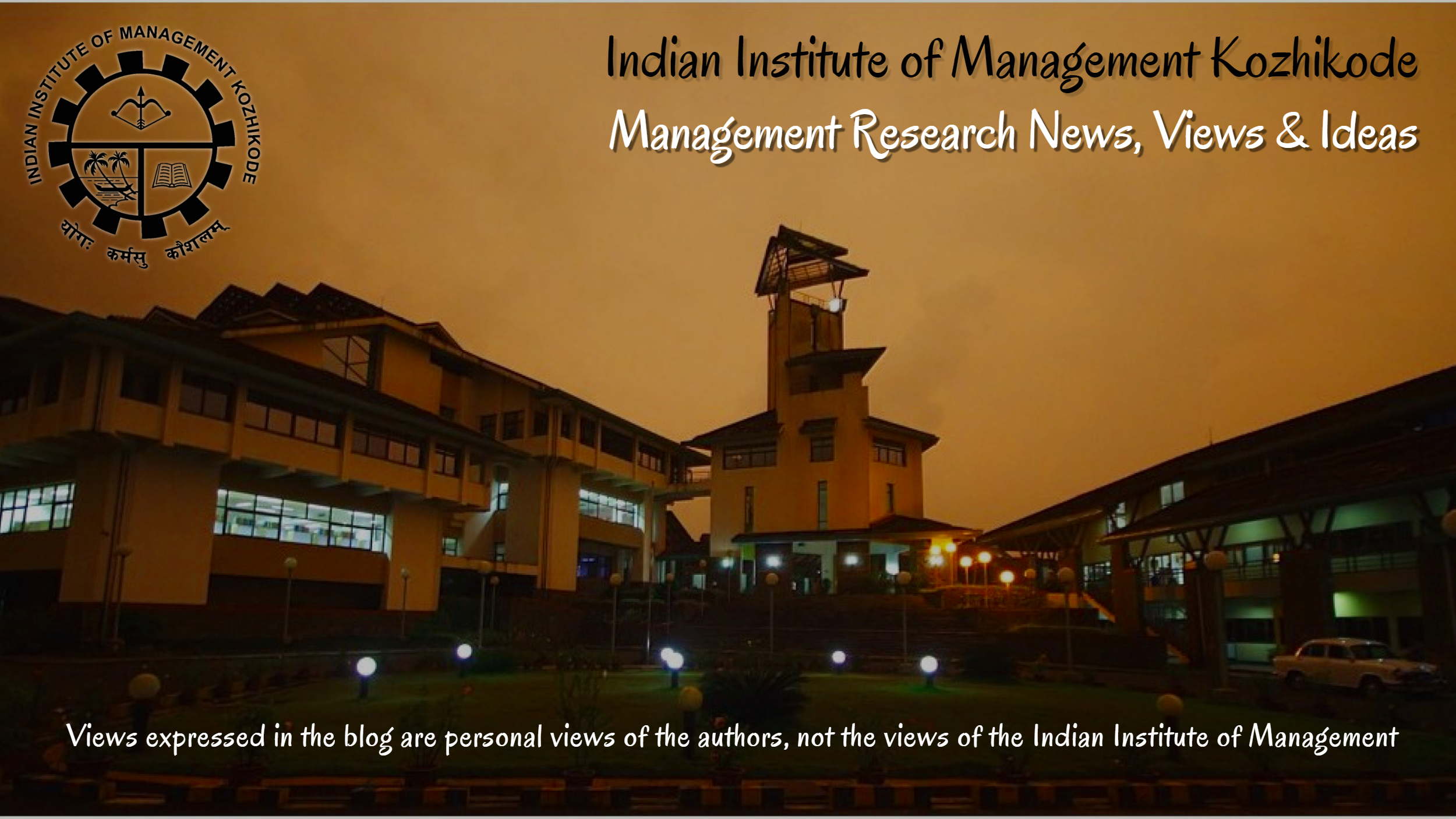



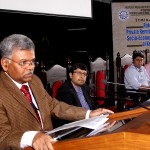
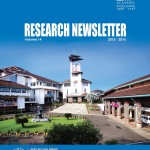
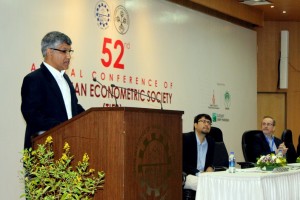

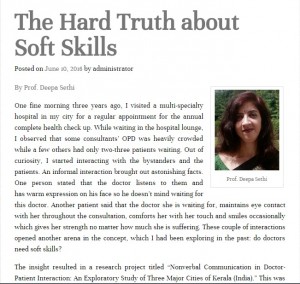
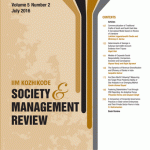
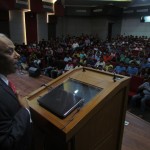
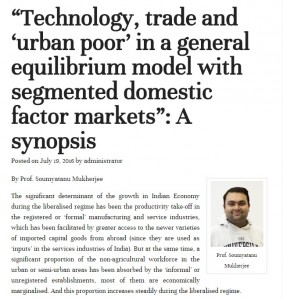
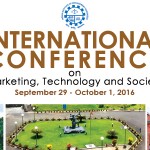





 Users Today : 295
Users Today : 295 Users Yesterday : 952
Users Yesterday : 952 This Month : 1247
This Month : 1247 This Year : 19910
This Year : 19910 Total Users : 578154
Total Users : 578154 Who's Online : 3
Who's Online : 3